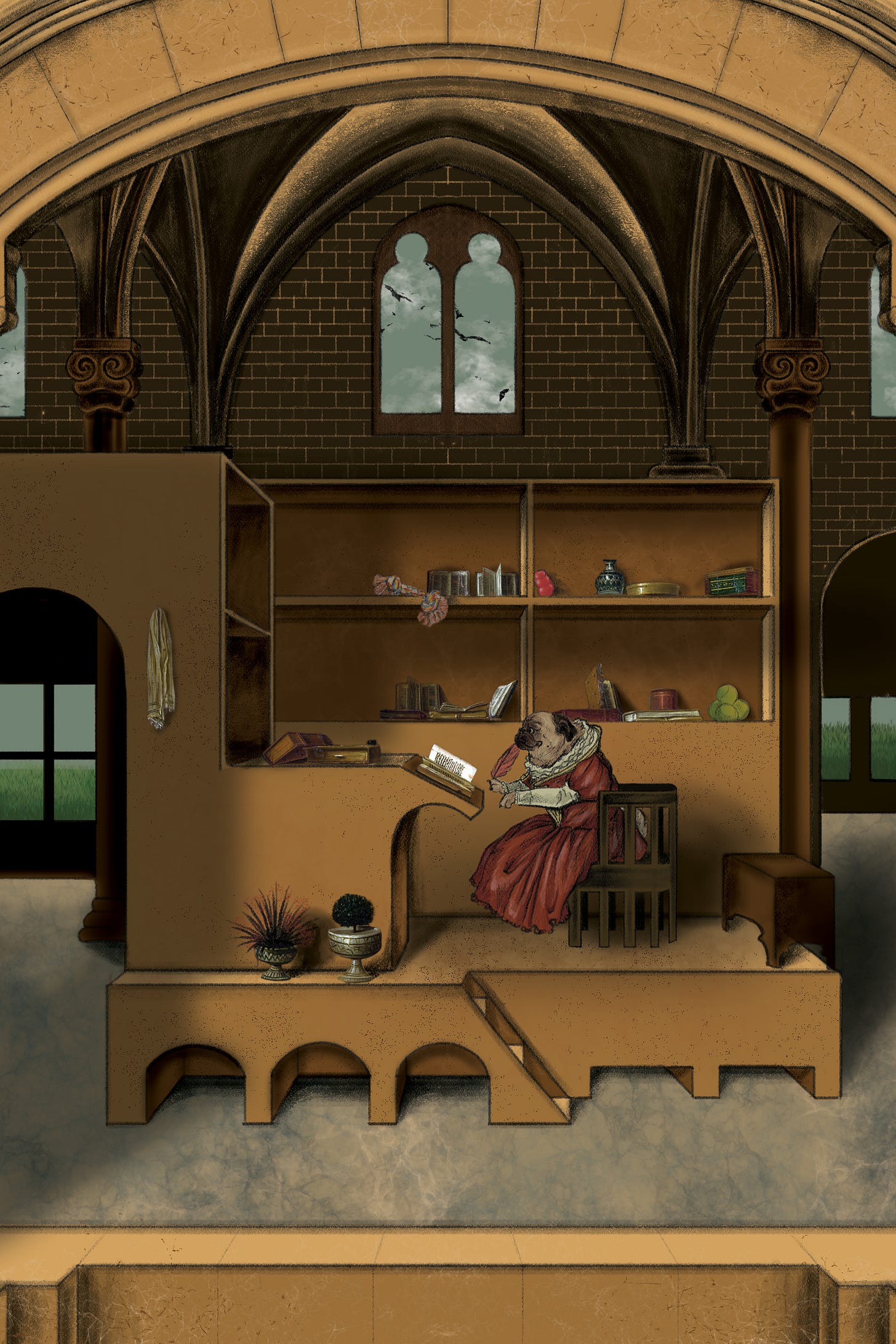The new book
The Complete Essays of Margaret the Pug? A Dog's Book of Wisdom? I can't decide.
The new book is a collection of thirty or so essays written from the point of view of my dear departed 18 year old pug Margaret, a wise soul. Here’s the table of contents:
A note on the translation
You can learn a lot from dogs
Why I never ask why
How to be good, or “What would a dog do?”
Everything is a story
Why I love my friends, no matter how bad they are
How disposition and usefulness show what a dog is about
Sometimes I think so much I forget where I am
How words get in the way of living
Of studs and bitches and who decides which is which
Pain and endurance
Good and bad and good and evil
I know eating poop is gross, but I like it anyway
Thinking is fun but not worth anything
On intelligence
Of the education of dogs
Of names
How breed has nothing to do with the value of a dog except for poodles
By diverse means I arrive at the same end
Of vain action
That the taste of good and bad depends in large part on whether they are in a pill pocket
How numbers mean nothing when I don’t know how much is enough
How every day I learn more about what I want
Of predator and prey
Of sleep
On mating
Of the custom of wearing clothes
On sadness
Of forgetfulness
Of being still
On loneliness
How I’m a dominant dog
On being in a pack
We own nothing
How we cry and laugh at the same thing
The chapter Tom made me write
Why life is enough and so is dinner
I have solid drafts for about 2/3 of the chapters. My goal is to have a complete draft of the book done October 31, no matter how bad it is. Now is not the time to be judgmental; now is the time to type fast.
You can read why Margaret agreed to write the book with me in the excerpt below:
You can learn a lot from dogs
Dogs don’t write many books. We enjoy life and learn all we need by living. Humans don’t get everything they need from living, so they look in books for what’s missing. They don’t find it because there are not enough books written by dogs.
We dogs love humans and want them to be happy. We are happy when humans are happy, and we are happy when humans are not happy, but we’re very happy when humans are happy. This book describes the mind of a dog, so it follows no particular order. A dog’s mind roams and follows the order of nature, which is the order of wisdom.
Humans are very unwise. Dog wisdom comes from instinct and training. Instinct is our first thought, and training is our second thought. Humans have either no instinct or bad training. My hope is humans can be trained to think like dogs, which is the right way to think, and if they obey, humans will be as content as dogs. We dogs will be happier, too.
All creatures feel pain. Pain can be either good or bad. Being hungry is good pain because it tells me to do something: eat. Being bitten by another dog is a bad pain because I can’t do anything about the pain. Even with food, health, entertainment, shelter, companionship, and no dog bites, humans feel pain, pain they think is bad, but may be good. Humans spend too much time with pain, which means we dogs spend too much time with humans who are in pain. Humans worry and fret. Humans are anxious. Some dogs are anxious, but only because they have not learned endurance, or they are of some inferior breed. I am a pug, and pugs know endurance, so I know endurance. Plus, I’m very old, and you must learn endurance to be very old.
Some time ago my hips began to ache. At first the ache appeared only after too much exercise. Then I felt the pain every day, but only so I was aware of it and not enough to stop me going up stairs. Then I could go up stairs some days and not others. Now I need help to go up stairs. As the pain grows, my endurance grows. I develop new ways to get up stairs, like getting the humans to carry me. Pain teaches me; it is my friend. If I learn from pain, then it’s good pain.
I started this book because of treats. I noticed Tom gave me more treats when we wrote together. He was happier, too, and that meant he filled my bowl more. After a while I saw how much Tom loved it when we wrote, and I began thinking other humans would give me more treats in the future if I kept writing. The promise of future treats is why I have done something as foolish as write a book, which is a lot of bother and not nearly as much fun as daydreaming. I will never do anything like this again. It’s very un-doglike behavior.
Why humans do what they do is a mystery. Why we dogs do what we do is plain; we do what we must to survive, and we do what we enjoy, and it’s best when those things are the same. We dogs are very patient, and we are good teachers. Someday, humans will see we know better and will learn to live more like us. Then everyone will have all the treats they want.


